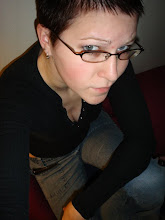I cannot say enough how perfect I thought the first line for Matthew Gutmann’s piece “Trafficking in Men: The Anthropology of Masculinity” is to make his point. In case you have not read it or to refresh your memory: “Anthropology has always involved men talking to men about men. Until recently, however, very few within the discipline of the “study of man” had truly examined men as men.” (385) One of the most interesting profound realities that has been brought to my attention in my studies of culture, sexuality, etc., is the phenomenon of ignorance in probably each and every inquiry. Regardless of what you’re studying, there is most likely something you are taking for granted. When you are trying to build a body of knowledge about something, there has to be a foundation upon which it’s built. This foundation is all too often accepted as truth if not absolutely dogmatic. The stability of this foundation, however, should always be taken into consideration. Nancy Tuana talks about it in terms of an Epistemology of Ignorance. An example is how we’ve define sexual deviance based on heterosexism for decades. Questions about the nature of heterosexuality: where does it come from? what does it mean? why? were simply overlooked. If heterosexuality was the natural foundation upon which we built our other knowledge, then why define it?
This article begins by pointing out that the foundation of anthropological discourse has, for years, had Man, and in many respects masculinity, as the natural foundation for the study of humanity. It is only recently that anthropological inquiry has begun to examine men as “engendered and engendering subjects.” (385) What is the nature of masculinity? Are men born or are they made? If a man is not masculine, is he automatically feminine? If he’s not absolutely masculine, is he automatically regarded as effeminate? The rest of Gutmann’s article lists observed behaviors, beliefs and concepts that have been encountered with these questions in mind in more recent anthropological studies. Overall it left me all the more convinced of cultural diversity, but did have some interesting consistencies. I don’t think this article is nearly exhaustive enough to absolutely take those consistencies to heart. I can only imagine what a work would look like that was exhaustive… if that’s even imaginable.
J.M. Carrier’s article “Homosexual Behavior in Cross-Cultural Perspective” has some more detailed examples of cultural diversity in attitude toward variations of cross-gendered identities and homosexual behavior. The part that catches my attention the most is in the Mexican culture. Mexican culture is known for having some of the most rigid, strict expectations of masculinity: hypermasculinity, machismo or macho-men. Boys and men that fall below these extremely high expectations are automatically labeled effeminate, regarded as homosexual, and targeted for homosexual activity (it is interesting to not that the “macho men” who seek out the “effeminate” men are not regarded as homosexual, as long as they play the dominant penetrator role in the sex act). This was an idea that struck me when we were reading about transsexuals and transgendered individuals. Could it be that, because of society’s high expectations for men, some just don’t feel capable of or simply don’t want to have to fulfill the role, and choose instead to identify as a woman? Could this be a psychological aspect of (at least some) transexuality? In Mexican culture there seems to be literal social force in addition to the obvious psychological aspects that lend to this assignment of (sexual?) identities. (238-239)
Why is it so common to correlate social “gender” roles with sexuality? Carrier pointed out what seems like should be obvious: “The link between cross-gender behavior and homosexual behavior is the belief that there should be concordance between gender role and sexual object choice.” (236) But not all societies and cultures throughout time as space necessarily make this connection. Some simply take on the social expectations of the opposite gender and we have no evidence of what their sex life, if they had one at all, was like. All, very interesting to think about…



